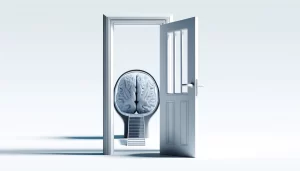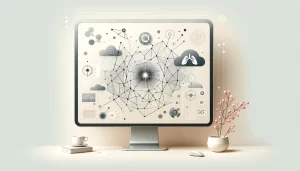The best way to deal with a problem is to simply…blame yourself. Trust me.

Self-Blame vs. Environment-Blame
Self-blame is a popular response that people have when they face adversity. In the past, it was socially acceptable for people to blame themselves for their misfortunes.
Blame has been an important part of human interaction from the beginning, and it is something that we use to understand what happened and how we can prevent it from happening again.
Blaming oneself for the mistakes of others is a destructive habit. When you blame yourself for something that was not your doing, it can lead to feelings of shame, anger, and resentment. Even if it is your fault, there are other things you can do to remedy the situation besides blaming yourself.
What are the Consequences of Blaming Others for Your Problems?
One of the main problems in this day and age is the misuse of the phrase “the devil made me do it.” The misuse of this phrase has led to many consequences that are not only socially unacceptable but also morally wrong.
We all know that blaming others is never a good thing, but when it’s done without any justification or explanation for why you think they are at fault, it can be very dangerous. It can lead to bullying, violence, and more serious consequences like abuse.
5 Benefits of Blaming Yourself first
It takes courage to admit your mistakes, but without it, there is no growth. Self-blame is the first step to self-improvement and to happiness.
1. You can learn from the mistake you made.
2. It teaches others that everyone makes mistakes and they should be more forgiving of mistakes people make.
3. It allows other people to take responsibility for their actions so they can grow as well.
4. It creates an environment that promotes accountability and responsibility because people know that they will be blamed for their actions if they are not careful enough about them.
5. When we take responsibility and put ourselves first, we can take attention away from our loved ones who need love and support too. This is because we’re so busy taking care of ourselves instead.
How to Adopt A Growth Mindset & Why It’s Important for Success
Having a growth mindset is all about believing that you have the power to change. It is about being open-minded and being able to learn from your mistakes.
You might think that you already know everything there is to know about your field but by adopting a growth mindset, you can do better and reach places that you previously didn’t think were possible for yourself.
Take Responsibility For Your Actions — The Role Of Self-Efficacy in Behavior Change
Self-efficacy is the belief that one has the capability to accomplish a goal. It’s the confidence to take on challenges and make changes in your life for the better. The more you believe in yourself, the more likely you are to achieve what you want — both in short term and long term
The ability to change your life is not just about willpower or positive thinking. It’s also about how confident you are that you can make changes. Unfortunately, many people have written off self-efficacy as being too elusive or even impossible for them to reach. But what if it wasn’t?
What are some ways that society can change so that people believe they have control over their own lives?
So stop blaming others and be happy today by blaming yourself



